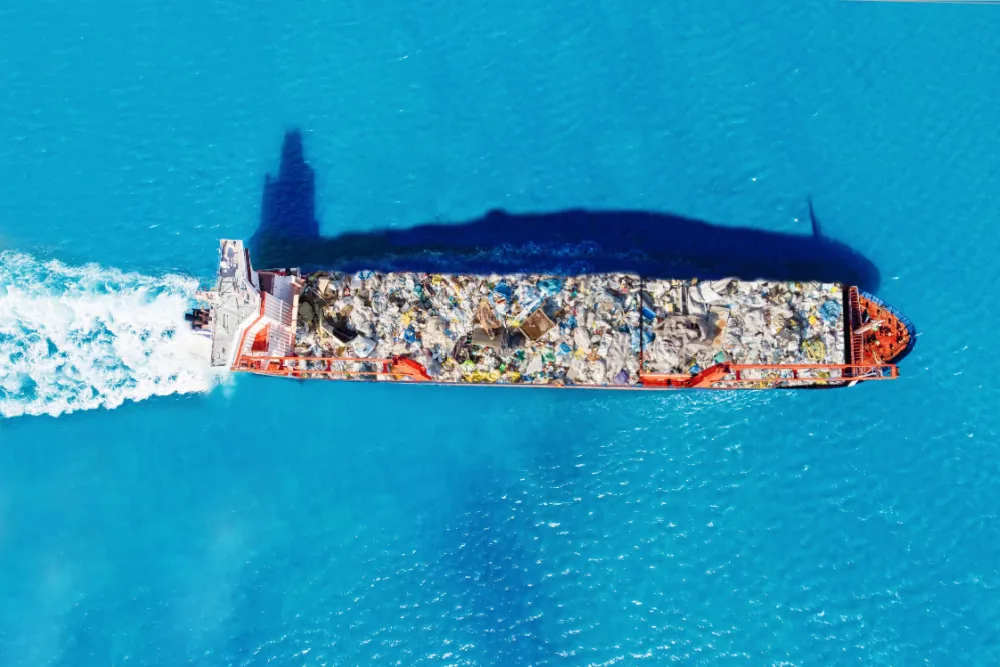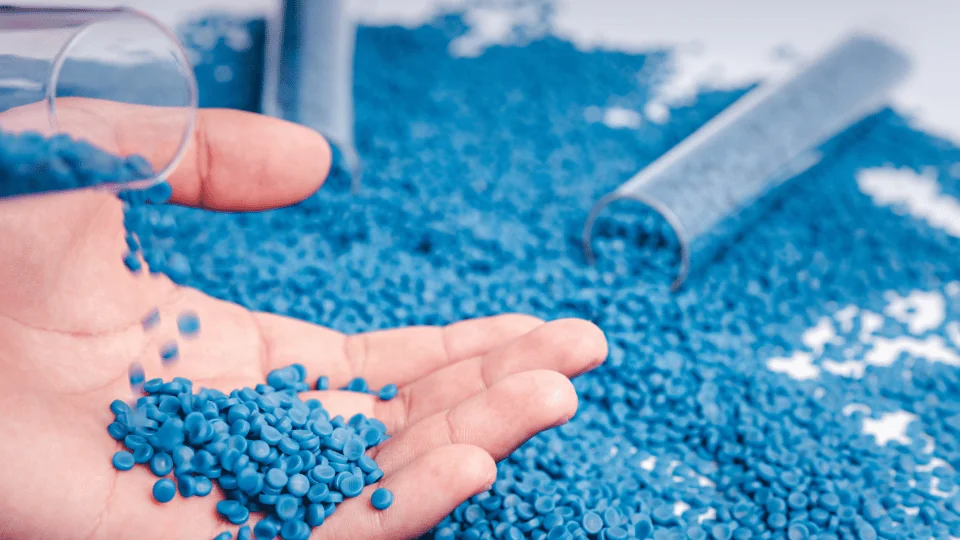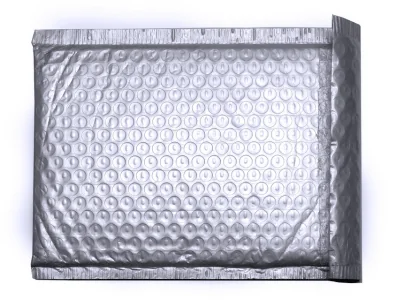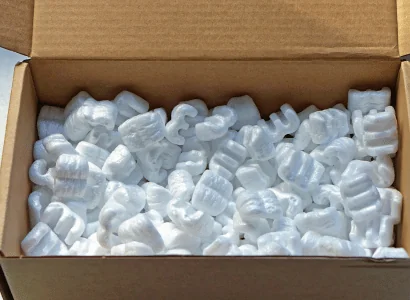
Shipping Plastics and Plastic Products
Shipping plastics safely and efficiently; that's the FreightCenter way!
Plastic shipments come in all shapes and sizes. Whether it’s resin, sheets, or packaging, we’ll help you move it with care, clarity, and the right carrier.
A Reliable Solution for Shipping Plastics and Plastic Products
Plastic products are all around us, from packaging materials and containers to automotive parts, furniture, and industrial components. But when it comes to transporting plastic goods safely and cost-effectively, not every logistics provider has the right tools or network. That’s where FreightCenter steps in.
Whether you’re shipping lightweight consumer plastics, bulk resin pellets, or large molded parts, FreightCenter connects businesses with reliable freight carriers that specialize in handling plastics and plastic products. We simplify the process, compare competitive rates, and ensure your goods are delivered securely and on time.
Thousands of businesses trust FreightCenter to move their freight faster, smarter, and cheaper! From unbeatable rates to top-notch service, our customers are raving about their shipping success.
See why they keep coming back!
Award-Winning Service, Trusted by Shippers Everywhere!
- 2021, 2017 & 2016 Food Logistics’ Top Green Providers
- 2021 & 2018 Supply & Demand Chain Executives’ Pros to Know: Matthew Brosious
- 2020 & 2019 Top Food Logistics’ 3PL & Cold Storage Provider Award
- 2020 & 2019 Business Observer’s Top 500 Companies on the Gulf Coast
- 2020 & 2017 SmartWay® Transport Partner
- 2020 & 2017 Food Logistics’ Champions: Rock Stars of the Supply Chain
- 2020 Best of Palm Harbor Awards for Local Businesses
- 2017 Green Supply Chain Award from Supply & Demand Chain Executive
- 2017 Tampa Bay Business Journal Heroes at Work
- 2016, 2015, & 2012 Food Logistics Top 100 Software and Technology Providers
- 2013 Tampa Bay Business 100 by Tampa Bay Business Journal
- 2013 Top 100 Great Supply Chain Partners by SupplyChainBrain
- 2012 TIA Samaritan Award Honorable Mention
- 2012, 2011 & 2010 TBBJ Fast 50 Recipient
- 2013, 2011, & 2010 Diversity Business Top Businesses

Why Choose FreightCenter for Shipping Plastics and Plastic Products?
Access to a Wide Carrier Network: FreightCenter partners with an extensive network of top-rated freight carriers that are experienced in transporting a wide range of plastics and plastic goods. Whether you’re shipping across the state or the country, we connect you with the best options for your shipment.
Freight Rate Comparison Tool: With our online freight quote tool, you can automatically compare rates from our network of top carriers. All you need to do is enter basic information about your shipment, and you’ll have a variety of options for shipping your freight.
Flexible Freight Solutions with Expert Support: From LTL to FTL and expedited shipments, we offer tailored freight solutions that meet your specific needs. Our experienced shipping specialists are available to guide you through every step of the process, ensuring your plastic goods arrive safely and on time.
Claims Assistance and Shipment Protection: In the unlikely event that an issue arises, our team is here to support you. We offer third-party freight insurance and provide help with filing and navigating carrier claims, giving you peace of mind from pickup to delivery.
More About Shipping Plastics and Plastic Products
We can coordinate freight shipping for nearly all types of plastics and plastic-based products, including:
- Plastic resin pellets and granules
- Injection-molded and blow-molded parts
- Plastic sheets, rods, pipes, and extrusions
- Plastic bottles and containers
- Consumer goods made of plastic (toys, bins, shelving)
- Recycled plastic materials
- Food-grade plastic packaging
All of these plastic materials and goods are relatively sturdy compared to other raw materials, such as glass. They are known for lasting years, even decades, without much wear and tear. However, they do come with their own set of logistical hurdles. Here are some common challenges of shipping plastics and how FreightCenter can help you overcome them.

Lightweight but bulky packaging: Plastic products often occupy a significant amount of space without weighing much, which can result in higher dimensional weight charges. FreightCenter helps reduce these costs by optimizing how your freight is classified and packaged, as well as by offering cost-effective LTL or partial truckload options when space efficiency is most crucial.
Heat sensitivity: Some plastics, like thermoplastics or food-grade packaging, can warp or degrade if exposed to high temperatures. FreightCenter connects you with carriers offering temperature-controlled freight options to protect your goods during transit, especially during the warmer months.
Fragility and static buildup: Electronics and delicate plastic components are vulnerable to both physical damage and static electricity. FreightCenter can assist with sourcing specialty packaging solutions or anti-static materials to keep your shipment safe and secure from pickup to delivery.
Complex shipping logistics: Shipping to multiple regions, coordinating deliveries with lift gates, or handling residential drop-offs can quickly become overwhelming. FreightCenter’s expert agents and powerful booking tools make it easy to plan multi-stop or special-service shipments without missing a beat.
In every case, FreightCenter is ready to help you navigate these challenges with confidence and deliver your plastic products safely, affordably, and on time.
FreightCenter helps you find the most efficient and cost-effective freight solution tailored to your shipping needs. With that said, how do you begin the shipping process? Let's go through the process, step by step, so your shipping experience is smooth and hassle-free.
Start by identifying your freight classification (freight class). This code alerts carriers to what type of shipment they're dealing with and how much to charge you. Most plastic products fall within NMFC codes between 150 and 250 depending on their shape, density, handling, and packaging. Weigh and measure the dimensions of your shipment accurately to avoid reclassification or surcharges.
Once you are ready to book, select how you will ship your plastics and plastic products. What you choose will depend on the shipment size, weight, handling needs, and other special circumstances. LTL shipping is good for small to medium-sized shipments that are okay to share space with other shipments. Full truckload is great for large shipments that need a dedicated trailer to move. Other options include expedited and temp-controller shipping.
Protective packaging is essential for plastics; while they are sturdier than other types of materials, they can be damaged by extreme heat, moisture, and electricity. Use sturdy corrugated boxes or crates for fragile items, and stretch wrap or shrink wrap for bundles or pallets. For plastic pellets or resins, use sealed containers or drums. Avoid overpacking to keep dimensional weight low.
Palletize your shipment properly to prevent shifting during transit. Label all sides of your shipment with destination and handling instructions like “Fragile” or “Keep Dry.” Anti-static wraps can be useful for certain plastic electronics components.


Key Factors That Affect Shipping Plastics and Plastic Products
Dimensional Weight & Freight Class
Plastics are often lightweight but bulky, which can lead to dimensional weight pricing. Proper measurement and accurate freight class help avoid extra fees.
Packaging & Palletization
Improper packaging can lead to damage or inefficient use of space. Smart palletizing and protective materials help ensure safe, cost-effective shipping.
Temperature Sensitivity & Handling
Certain plastics may warp or crack in extremely high or low temperatures. If your product is sensitive, temperature-controlled, or requires specialty handling, it may be necessary.
Origin, Destination & Accessorials
Where your shipment starts and ends affects cost, especially with liftgate needs, residential access, or delivery appointments. Planning ahead avoids surprises.
Frequently Asked Questions about Shipping Plastics and Plastic Products

Q. What are some of the issues that can come with shipping plastics?
Shipping plastics can present a few unique challenges. Common issues include dimensional weight pricing for bulky but lightweight items, heat exposure that can warp certain plastics, and fragility in thin or molded components. FreightCenter helps mitigate these risks by providing expert guidance on packaging, matching your shipment with the right carrier, and offering services like temperature-controlled shipping when needed.
Q. What’s the best way to ship plastic products through freight?
The best way depends on the size, shape, and quantity of your shipment. LTL freight is ideal for smaller loads like packaged goods or plastic bins, while full truckload or partial truckload options are better for high-volume or oversized plastic parts. FreightCenter helps you choose the right freight mode and compares rates from top carriers so you get the best deal without compromising service.
Q. Do I need special packaging to ship plastic items?
Yes, proper packaging is important to prevent shifting, cracking, or deformation in transit. Depending on the item, you may need shrink wrap, sturdy corrugated boxes, or crating for added protection. FreightCenter offers guidance on packaging and can connect you with packing experts if your shipment needs extra care.
Q. Are plastics considered fragile for shipping purposes?
It depends on the type of plastic. While some plastics are highly durable, others—especially thin, molded, or hollow items—can crack or deform under pressure. If you’re unsure whether your goods need special handling, FreightCenter’s team can help assess your product and recommend best practices.
Q. How do I classify plastics for freight shipping?
Plastic products usually fall between NMFC classes 150 and 250, based on their density, shape, and packaging. An incorrect freight class can lead to added charges or delays. FreightCenter helps customers determine the correct classification to ensure accurate quoting and smooth shipping.
Q. Can I ship recycled plastics or plastic waste?
Yes, recycled plastics and scrap plastic can be shipped, but they may require specific packaging or handling, especially if they’re loose or sharp-edged. Some carriers specialize in these types of loads, and FreightCenter can match you with one that meets your requirements.
Q. What if my plastic shipment is heat-sensitive?
Some plastics, especially thermoplastics, can soften or warp in high temperatures. In these cases, it’s best to use temperature-controlled freight. FreightCenter can help you book a carrier that offers climate-controlled trailers to keep your shipment protected throughout its journey.
Q. How much does it typically cost to ship plastics by freight?
Costs vary based on weight, dimensions, distance, freight class, and required services like liftgate delivery or temperature control. For example, a pallet of plastic containers may cost $150–$300 to ship regionally via LTL. You can get accurate pricing through FreightCenter’s online quote tool or by speaking with a shipping expert.
Q. Can I ship plastic resin pellets or granules?
Absolutely. These are often shipped in bulk bags, drums, or super sacks. FreightCenter can help you book full or partial truckload services for large quantities and ensure you’re matched with carriers that know how to handle raw plastic materials safely.
Q. What’s the difference between shipping finished plastic products and raw plastics?
Finished plastic goods may require more protection due to their shape or fragility, while raw materials like pellets can often be shipped in bulk without as much packaging. FreightCenter helps with both, offering freight solutions and packaging guidance tailored to the type of plastics you’re moving.
Q. Do I need to label plastic shipments with special instructions?
Yes, clear labeling helps avoid mishandling. Mark your freight with delivery addresses, handling instructions like “Fragile” or “This Side Up,” and include a packing list if applicable. FreightCenter encourages proper labeling and can provide tips during the booking process.
Q. Are there restrictions on shipping plastic products across state lines?
Generally, plastics can be shipped freely across the U.S., but certain types (like hazardous plastics or items containing restricted chemicals) may require permits or special handling. If you’re unsure, FreightCenter can help clarify requirements based on your product and destination.
Q. Can I schedule recurring plastic product shipments with FreightCenter?
Yes, many businesses that ship plastics regularly use FreightCenter to set up recurring shipments. Our account managers can streamline the process, secure volume discounts, and provide consistent support for your shipping schedule.
Q. What if my shipment gets damaged during transit?
If damage occurs, you can file a claim with the carrier—and FreightCenter is here to help you through that process. We also offer third-party freight insurance for higher-value or fragile plastic products to add peace of mind before your shipment even leaves the dock.
Q. Can I ship plastics internationally through FreightCenter?
Yes, FreightCenter can help you coordinate international shipments of plastic goods. Whether you’re sending bulk resin to a manufacturer overseas or exporting finished plastic products, we’ll help you navigate customs requirements, documentation, and carrier selection. Our team ensures your shipment complies with international shipping standards and arrives safely and efficiently.
Helpful Tips for Shipping Plastics and Plastic Products

Avoid heat and fire exposure
Store and transport plastic materials away from heat sources, especially thermoplastics. Intense heat could melt your plastics, jeopardizing your shipment and putting other shipments or other non-plastic products in your shipment in danger.

Use anti-static measures
For electronic or sensitive plastic parts, static shielding can prevent product damage. Examples of shield shielding packaging materials include metal bags and tubing, designed to keep products safe from ESD-related issues.

Reinforce lightweight shipments
Plastics are often low in density but large in volume. Avoid crushing or shifting by reinforcing packages and securing them well on pallets. You can do this using double-walled cardboard boxes, crates, or packaging materials like bubble wrap and packing paper.


